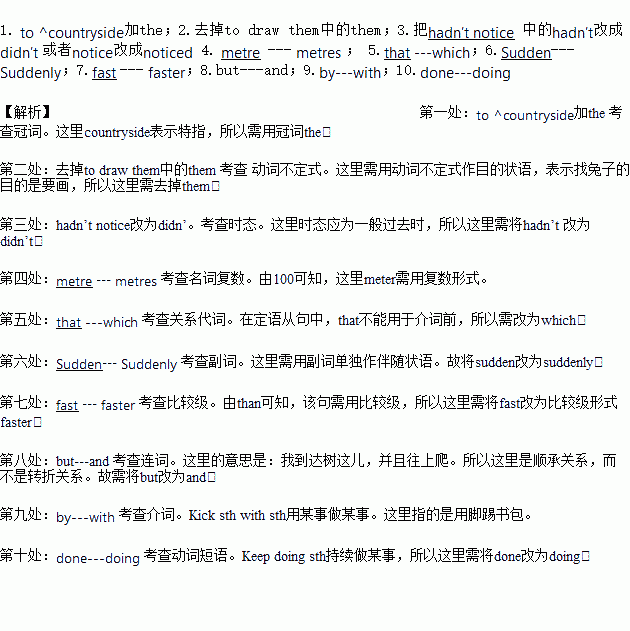题目内容
假定英语课上老师要求同桌之间交换修改作文,请你修改你同桌写的以下作文。文中共有10处语言错误,每句中最多有两处。每处错误仅涉及一个单词的增加、删除或修改。
增加:在缺词处加一个漏字符号(∧),并在其下面写出该加的词。
删除:把多余的词用斜线(\)划掉。
修改:在错的词下划一横线,并在该词下面写出修改后的词。
注意:1.每处错误及其修改均限一词;
2.只允许修改10处,多者(从第11处起)不计分。
I used to go to countryside to draw animals and plants. One day I was walking across a field looking for rabbits to draw them. Lost in thought, I hadn’t notice a bull running towards me. About 100 metre ahead was a tree under that I would sit and draw. Sudden, I heard a noise behind me. I turned and saw the bull. Knowing a bull can run fast than a man, I quickly reached the tree but climbed up. From there I saw the bull kicking my food bag by its feet. It kept done this for 15 minutes and finally moved away.
练习册系列答案
相关题目

